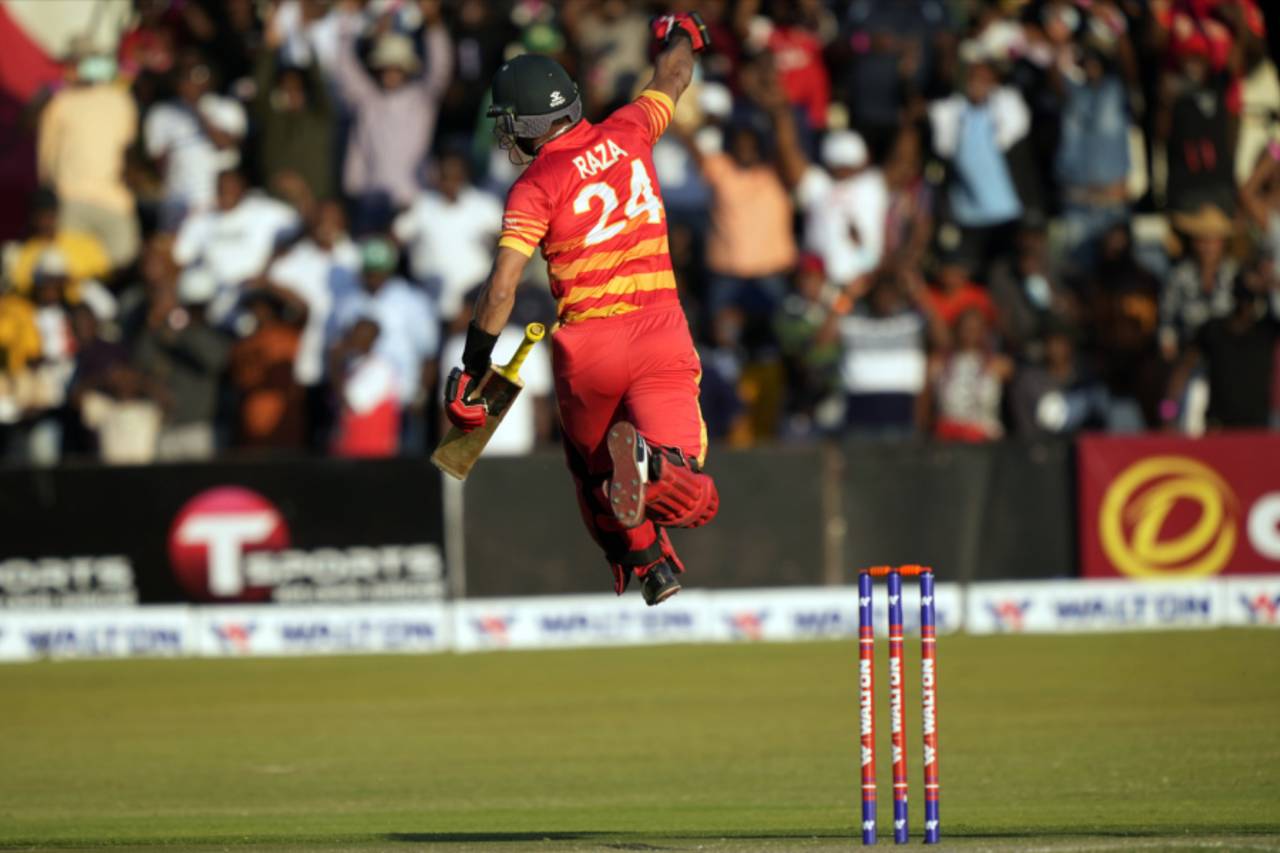Who holds the record for the most runs on a single ground in a calendar year?
And has any other batter bettered Chris Gayle's 15 Test hundreds on 15 different grounds?

No other batter has more than Sikandar Raza's 753 runs on one ground - Harare - in a single calendar year • Associated Press
Although Essex's collapse in that remarkable match in Chelmsford last week was very striking, overall it was well down the list of the smallest targets not achieved. There have been over 150 smaller ones, the lowest recognised by the Association of Cricket Statisticians being 41, when MCC were all out for 34 against Oldfield (a team from Berkshire) at the original Lord's Ground in 1794. Rather more recently, Border, set 42, were bowled out for 34 by Eastern Province in a low-scoring Currie Cup match in South Africa in East London in 1946-47.
Zimbabwe's Sikandar Raza scored 753 international runs at the Harare Sports Club during 2022 - 540 in nine one-day internationals (including three centuries), and 213 in six T20Is. The previous record for one ground in a calendar year was 738 by Pakistan's Zaheer Abbas, in Lahore in 1982; his total was made up of 401 in three Tests, with 215 against India and 134 against Sri Lanka, plus 337 in three ODIs, in each of which he scored a century.
The record in a Test innings is seven different bowlers taking a wicket, which has happened four times now. The first was by all seven bowlers tried by England against Australia in Melbourne in 1897-98, while the most recent instance came in Centurion in 2005-06, when seven New Zealanders took wickets in South Africa's second innings. The record for different bowlers taking a wicket in a Test is 13, which has also happened four times.

Chris Gayle's 15 centuries on 15 different grounds is easily a record for Tests. Australia's Simon Katich comes next, with ten, while Ted Dexter of England, New Zealand's Stephen Fleming and Navjot Sidhu of India all scored nine hundreds on nine different grounds.
England's captain Freddie Calthorpe preferred to bat again despite a lead of 563 (849 vs 286) against West Indies in Kingston in 1929-30. His thinking was that it was a timeless Test - but it didn't do him much good, as West Indies, set the little matter of 836 to win, had reached 408 for 5 by the end of the seventh day. It then rained for two days, and the match had to be left drawn as the England side needed to catch the boat home.
Steven Lynch is the editor of the updated edition of Wisden on the Ashes